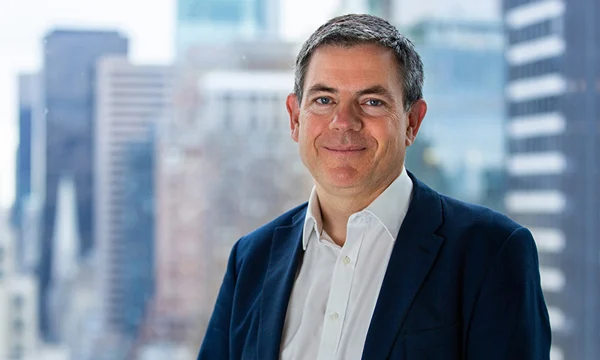Sign up today to get the best of our expert insight in your inbox
How energy diversification can drive development
Special pre-ADIPEC preview episode
Ed Crooks
Vice Chair Americas and host of Energy Gang podcast

Ed Crooks
Vice Chair Americas and host of Energy Gang podcast
Ed examines the forces shaping the energy industry globally.
Latest articles by Ed
-
Opinion
Supply chain constraints limit the growth of gas-fired generation in the US
-
Opinion
A solution to the problem of paying for data centre power?
-
Opinion
The US oil industry is consolidating as growth slows
-
Opinion
Energy storage steps up
-
Opinion
How the US power system coped with the threat from Winter Storm Fern
-
Opinion
International buyers find value in US gas assets
As global energy systems evolve, emerging economies face a defining challenge: how to secure affordable power for today while investing in the low-carbon solutions that will drive tomorrow’s growth. Can energy diversification unlock a new era of industrial development, resilience, and inclusive prosperity?
In the third and final episode of our special series ahead of ADIPEC 2025, host Ed Crooks is joined by Charlotte Wolff-Bye, Group Chief Sustainability Officer at PETRONAS, and Andrew Smart, Senior Managing Director at Accenture. Together, they explore how countries in Asia, the Middle East and beyond are using integrated energy strategies to build stronger, fairer economies.
Charlotte explains how PETRONAS is redefining its role as a national energy company: supporting Malaysia’s growth through lower-carbon development, capacity-building, and nature-based solutions. She outlines how the company’s investments in renewables, hydrogen, and carbon capture are creating skilled jobs, building local supply chains, and delivering a “just transition” that lifts communities.
Andrew shares Accenture’s perspective from the Middle East, where nations are emerging as pivotal connectors between the Global North and South-linking capital, technology, and opportunity. He discusses how digital innovation, AI, and regional interconnection are reshaping resilience and competitiveness, while new financing and regulatory models aim to make clean-energy investment bankable at scale.
The message from emerging economies is clear: energy transition and economic development can must advance hand-in-hand. Finally, the group considers what a decade of progress might bring us, including more collaborations across borders and across sectors. They explain why new connections such as regional power grids, diversified supplies, and joined-up policies and corporate strategies point to brighter futures for energy and human development.
Let us know what you think. We’re on X, at @theenergygang and Bluesky, at @theenergygang.bsky.social. Make sure you’re following the show so you don’t miss an episode – we’ll be back in two weeks, Tuesday morning at 7am eastern time.
This is the third and final special episode sponsored by ADIPEC 2025, where the theme is Energy Intelligence Impact. The event brings together 205,000+ attendees and 1,800+ speakers in Abu Dhabi from 3–6 November 2025. The Energy Gang will be recording live at the event. Join us there to be part of the conversation.
Learn more and register at adipec.com.
Business as usual is over
Introducing the latest insight from our thought leaders, the book Connected: Bringing predictability to the increasingly uncertain world of energy.
As climate change accelerates and geopolitical tensions reshape global markets, the energy landscape has become increasingly interconnected. Connected explores why those interconnections have developed, and how they bring clarity to the most important decisions we make about the future of energy.







